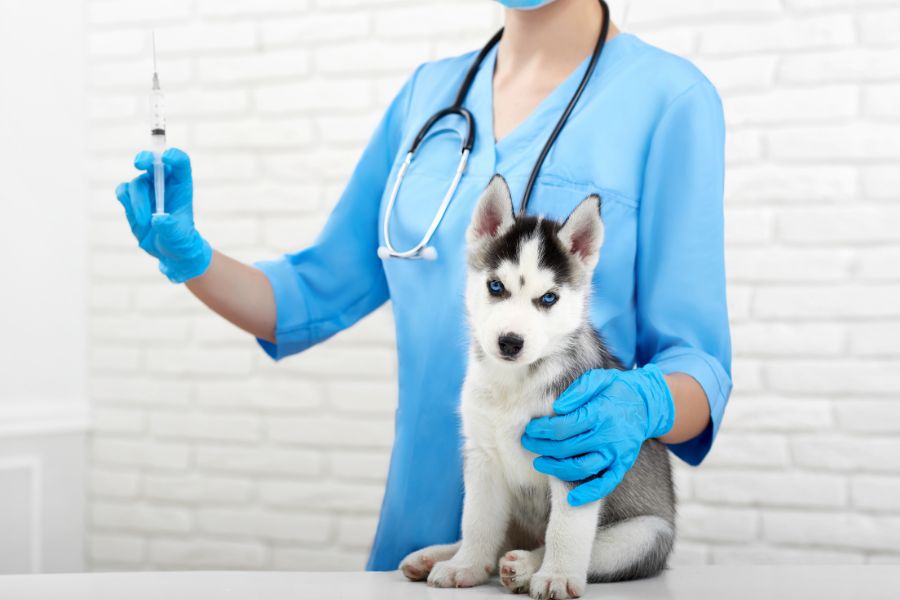As responsible dog owners, it is up to us to know about potential viruses and illnesses that can affect our dogs. There is a whole world of bacteria and viruses out there that can affect our pets. By knowing about these various diseases and infections, we can learn how to spot symptoms and prevent our pets from getting sick. This blog looks at what you need to know about parvo.
What is Parvo, or canine parvovirus?
The canine parvovirus, better known as parvo, is a highly contagious virus spread through direct contact with infected feces. Other dogs can carry the virus, or the virus can survive outside under the right conditions and could infect your dog if they come across an infected area. Remnants of infected feces can be in the grass or around food bowls, water bowls, and other objects. Once your dog is infected with the virus, it spreads to their stomach and small intestine, where it causes a lot of damage. The virus destroys cells, prevents nutrient absorption, and interferes with the gut barrier. The virus can also affect puppies’ bone marrow and lymphatic tissues. This significantly decreases your dog’s immunity and makes them susceptible to catching other illnesses. If this occurs, your dog can suffer under all the symptoms as their body will have a tough time fighting against them.
Symptoms and Signs
Since the parvovirus is very harsh, the symptoms and signs cannot be missed as your dog will be very sick. Some symptoms of the parvovirus are: vomiting, fever, anorexia (extreme weight loss), blood in diarrhea, lethargy, weakness, dehydration, and depression. If your dog is not vaccinated and experiences several of these symptoms, please get in touch with your vet immediately. Since the virus is very contagious, please call your veterinarian’s office in advance of coming so that they can take the appropriate measures to quarantine the area for your dog. This way, no other dogs will get infected.
Treatment and Care
Sadly there is no cure for parvo. If you suspect your dog or puppy has parvo, call your vet immediately and set up an appointment with them as soon as possible. Once your dog is confirmed to have parvo by the vet, they receive various medications to help them fight symptoms and help their body function properly. If your pet contracts an additional illness or bacteria, the vet will provide antibiotics for your dog to fight the disease as their immune system will not be strong enough. These medications will help keep your dog healthy as they battle the virus. This treatment and care can be costly and timely. Ideally, it’s best to prevent the infection to save you time and money.

Prevention is Best
Parvo is entirely preventable as long your dog is not exposed to an infected dog or object and is vaccinated. Vaccinating your dog is the best way to prevent your dog from contracting the parvovirus. There is a series of shots to get, so be sure your dog has all of their shots before you take them to public areas with other dogs present. If you have a puppy, keeping them isolated from other dogs and at home is essential. Since puppies don’t have the strongest immune systems, they are easily susceptible to contracting the virus. Only introduce your puppy to other dogs and places after receiving all their shots. If you would like to take extra precautions, you can also clean your puppy’s area with a parvo killer/disinfectant cleaner to ensure the space is free of the virus.
Take this Seriously
What you need to know about parvo is that it is a severe and very contagious virus. The canine parvovirus can spread like wildfire to puppies and unvaccinated dogs. This virus can be potentially life-threatening and cause lasting damage to your dog’s health and even cause early death. It’s essential to learn about the parvo virus and to take the appropriate preventative measures to ensure your dog does not contract it. Please follow Luv My Sitter on social media for more information on our services and blog posts! Remember, being safe early on is always better than risking a lifetime of issues later in life.

